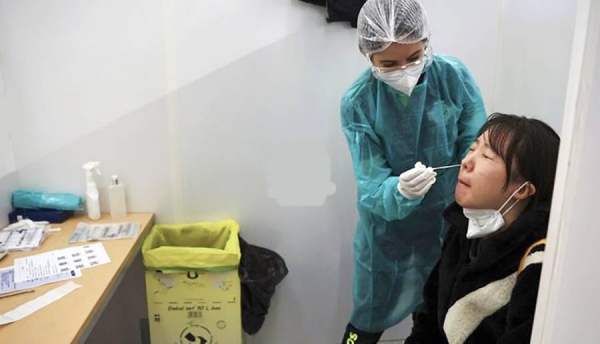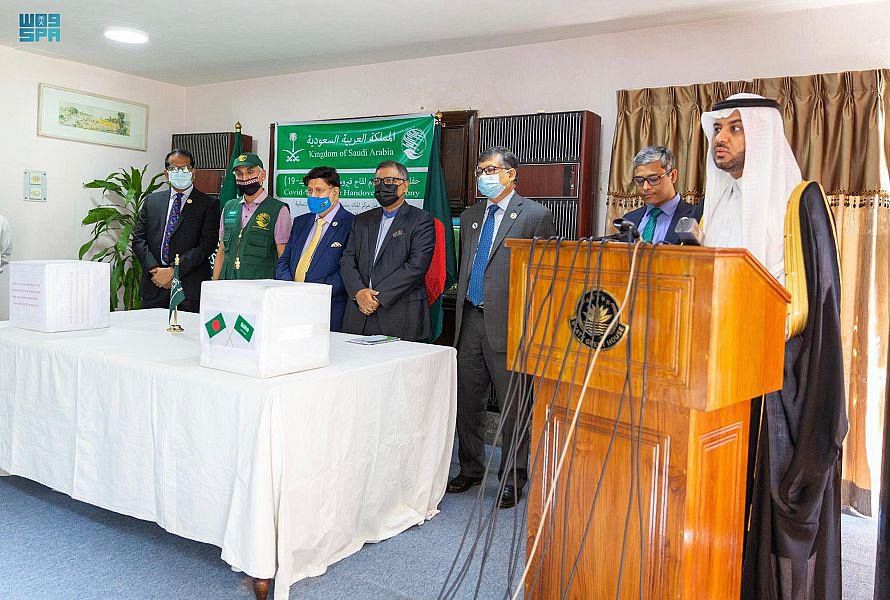
Key military officials are to help ensure food and medicines reach vulnerable people isolated at home during the coronavirus crisis, as part of a nationwide campaign to protect more than a million people most at risk of being hospitalised.
Community pharmacies, voluntary groups and food retailers are in talks with the government to ensure essential items reach people being told to remain in their home. Those believed to be at most risk are being contacted on how best to protect themselves, and being strongly advised to stay home for at least 12 weeks.
It marks the latest extraordinary action to tackle the crisis, after a week of interventions that have reshaped day-to-day life in Britain. In an attempt to persuade the public to obey social distancing measures designed to slow the spread of the virus, Boris Johnson on Saturday night pleaded with the public not to visit their mothers on Sunday for Mother’s Day. He warned anyone elderly or frail was “much more likely to die” from infection. He also had a grave message about the progress of the disease.
“We cannot disguise or sugar-coat the threat,” he said. “The numbers are very stark, and they are accelerating. We are only a matter of weeks – two or three – behind Italy. The Italians have a superb healthcare system. And yet their doctors and nurses have been completely overwhelmed by the demand. The Italian death toll is already in the thousands and climbing. Unless we act together – unless we make the heroic and collective national effort to slow the spread – then it is all too likely that our own NHS will be similarly overwhelmed.”
Saturday was the worst yet for the UK and the rest of the world. NHS England said 53 more people had died, with two in Wales and one in Scotland, bringing the UK death toll to 233 – a rise of nearly 30% in 24 hours. A total of 5,018 people have tested positive for Covid-19, up by 1,035.
Global deaths stand at 11,184, according to the World Health Organization, which reported 32,000 new cases on Saturday – the largest daily increase so far. More than 266,000 people have caught the virus. Italy continues to suffer most, with 793 more deaths in the past day and 53,578 cases overall. Spain and the Netherlands also saw large jumps.
Up to 1.5 million people in England currently live with health conditions or are receiving treatment, which health experts believe puts them at a much greater risk from the virus. Those who need it will be given help in securing provisions. Military planners are already working with local councils on their coronavirus response plans, and their numbers will be expanded to support the effort to help the most vulnerable.
It has also emerged that the Queen will address the nation during the crisis in an attempt to rally the country as the outbreak develops.
On Saturday, ministers were also battling to dispel concerns over food shortages, as panic buyers were told they should be ashamed of depriving NHS workers poised to confront the mounting national crisis.
The government is under mounting pressure over elements of its response to the pandemic. Johnson is now facing increasing demands to urgently improve personal protection equipment for NHS staff, while pressure is mounting for a further aid package for millions of self-employed workers. The demands come just 24 hours after he announced unprecedented measures to close pubs, restaurants and clubs, and a scheme to pay the wages of workers threatened with the sack.
The environment secretary, George Eustice, on Saturday called on shoppers to “be responsible”. He said there was no shortage of food, with 50% more produce being made available in some areas. Restrictions on deliveries to stores and driver hours have been ditched to help supply, while supermarkets have been allowed to share staff and vehicles and coordinate opening times.
At a Downing Street press conference, NHS England’s national medical director, Stephen Powis, went further in denouncing those stockpiling, saying they should be “ashamed” of the effect they were having on NHS staff trying to get what they need.
Charities for more vulnerable groups have also told the Observer that they are becoming increasingly concerned that many people are facing real food shortages because they have no access to stores and online shopping slots are booked weeks in advance. Many of those who can get supplies are struggling to pay for the few things that are available, because the cheaper options are often the ones that disappear first from the shelves.
If the current measures are not enough, “then the government needs to come forward very quickly with a firm and effective response, otherwise there’s a growing risk that some older people will be left without the essentials they need,” said Caroline Abrahams of the charity Age UK.
John Lewis announced on Saturday that it would temporarily shut all 50 of its department stores from Monday, with its online site continuing to operate. The group’s Waitrose shops will remain open. More than 2,000 John Lewis staff are already working in Waitrose shops to cope with the unprecedented demand for groceries and more will be redeployed “wherever possible”. Pret a Manger also took the decision on Saturday night to shut temporarily, saying its intention was that no jobs would be lost.
With the number of coronavirus cases mounting, NHS workers on Saturday demanded a guarantee that they would be given proper protection provision and immediately have access to testing for the virus, as concerns grew that they were facing unreasonable exposure.
A group of 40 leading scientists also wrote an open letter to the prime minister calling for an “urgent enforced lockdown” in the areas highly affected by the virus, coordinated alongside more testing, case isolation and contact tracing of those who could be infected.
Demands for more help for the self-employed also grew, following concerns that they would not be helped by the government’s pledge to pay 80% of the wages of employees threatened with dismissal as a result of the crisis. Sadiq Khan, the London mayor, is among those demanding further measures, alongside Tory MP David Davis, the TUC and the Resolution Foundation thinktank.
A poll for the RSA, conducted by Populus before the government’s latest economic aid package announced on Friday, found that 47% of the self-employed were concerned they would have to work even if they felt ill. More than half (51%) of those working in the gig economy said they felt the same. An Opinium poll for the Observer, also conducted before Friday’s financial package was announced, found that just under half (47%) approved of the way the government had handled the crisis, while 31% disapproved. It gave the government a positive net score of +16%, up slightly from +14% at the end of last week.












